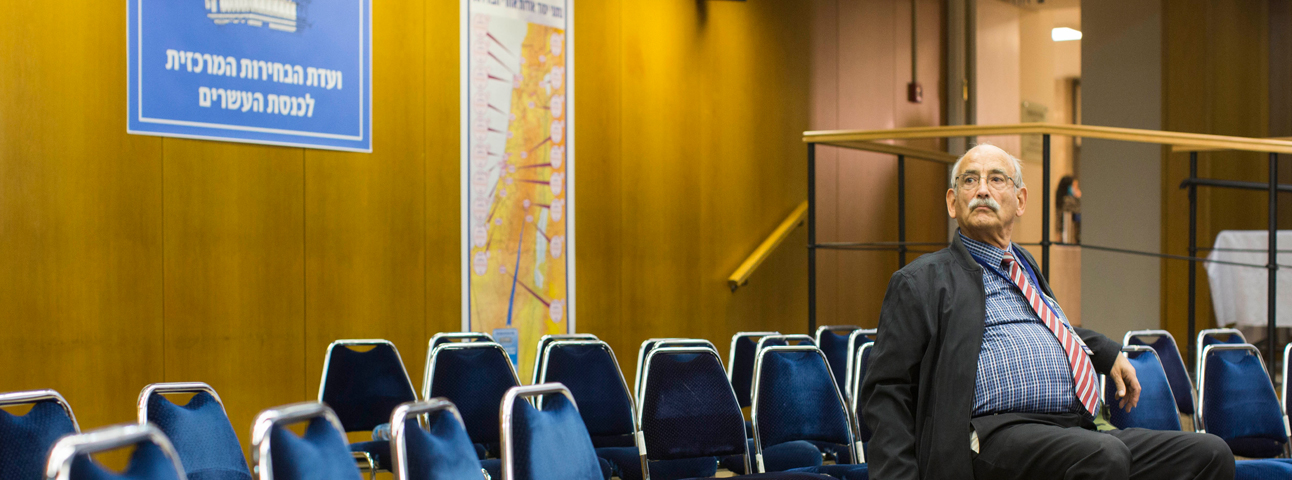Has The Era of the Primaries Come to an End?
Democracy is at risk when the responsiveness between the public and its elected representatives is severed. Without accountability, political extremism and populism will become more prevalent.

Illustration | Flash 90
More than in any past elections, the early stages of the current election campaign has new political parties popping up, with a well-known public figure at the helm. In an era of increasing personalization of politics, it seems natural that a party is identified by its leader. However, there are significant ramifications to this process. One concerns the disintegration of the next Knesset into many splinter factions. Such fragmentation will undermine the government stability and its ability to steer a course and govern. A fragmented Knesset will also affect the opposition's capacity to operate as a united bloc and to offer a viable alternative to the government. A second consequence is related to the fact that which the vast majority of these new parties are not adopting primaries or any other internal democratic process to choose their list of candidates for the Knesset.
The prevalence of parties whose list of candidates is determined by their leaders is not only evidence of the personalization of politics but also proof of the public's distaste for internal democracy, and especially—for the primaries system. In the current campaign, only the Likud, Labor and Meretz parties will select their party list by conducting primaries. Hadash (the Democratic Front for Peace and Equality), National Union, and Balad (the National Democratic Assembly) parties will also hold internal elections, although on a smaller scale—that is, within the parties' central committees. However, in all the other parties expected to be elected to the next Knesset, the candidates will be selected by the party leader, rabbinic councils or nomination committees. According to the latest polls, less than 40% of the MKs in the next Knesset will be selected through internal democratic processes. Just ten years ago, this figure stood at two thirds of MKs.
The much-maligned primaries method thoroughly deserves its negative image and is not without inherent flaws such as: vote brokers, party members who do not represent the party electorate, and organized interest groups which MKs feel obliged to serve. Despite these shortcomings, we need to consider the alternative and ask ourselves whether a Knesset in which the majority of MKs has been appointed by party leaders and nomination committees is better. Some will argue that we are merely correcting current practices and returning to the era of nomination committees which dominated Israeli politics until the 1970s. However, this claim ignores the reality in those years, when the parties had active internal institutions, thriving local branches and had a significant presence in the public arena. Even if the party lists were appointed (rather than elected), the process brought the members' interests to the fore and reflected their social make-up. In today's leader parties, there is no such upward mobility of candidates. The total lack of internal institutions and mid-level party members woefully constrains the parties' ability to fulfill their role of representing a variety of population groups and responding to the public's wishes, transforming them into hollow parties
Assuming that leader parties are not going to disappear from the political map in the near future, we should at least consider ways in which party supporters can make their voice heard and exert influence within the party. One such way is to open up channels of communication between members and the party. For example, although Yesh Atid lacks any internal democratic institutions, since its inception six years ago, it has successfully set up an impressive national network of local activists who organize events, have an active presence on social media, and recruit volunteers.
Another option is to persuade such parties (and others) to support the adoption of semi-open ballot in elections to the Knesset. This model exists in most other democracies whose electoral system is similar to Israel's. In this model the ballot slip will include not only the party’s label but also its list of candidates, pre-determined by the party leader, a nomination committee, or even by primaries. Every voter would be able to choose his or her preferred candidates. When the votes are counted, those candidates who pass a threshold of a minimum number of votes will be pushed up the list. Such a reform would reinforce elected officials' accountability to their voters and increase voter interest in the party's activities and election process.
Democracy is at risk when the responsiveness between the public and its elected representatives is severed. Without accountability, political extremism and populism will become more prevalent, the gap between politicians and the public will widen, and public trust in the democratic institutions and in the state itself will decrease. If, as current polls suggest, this extremist tendency will be prominent in the coming elections, party leaders will have to act responsibly and work to correct it.
The article was published in the Jerusalem Post.
